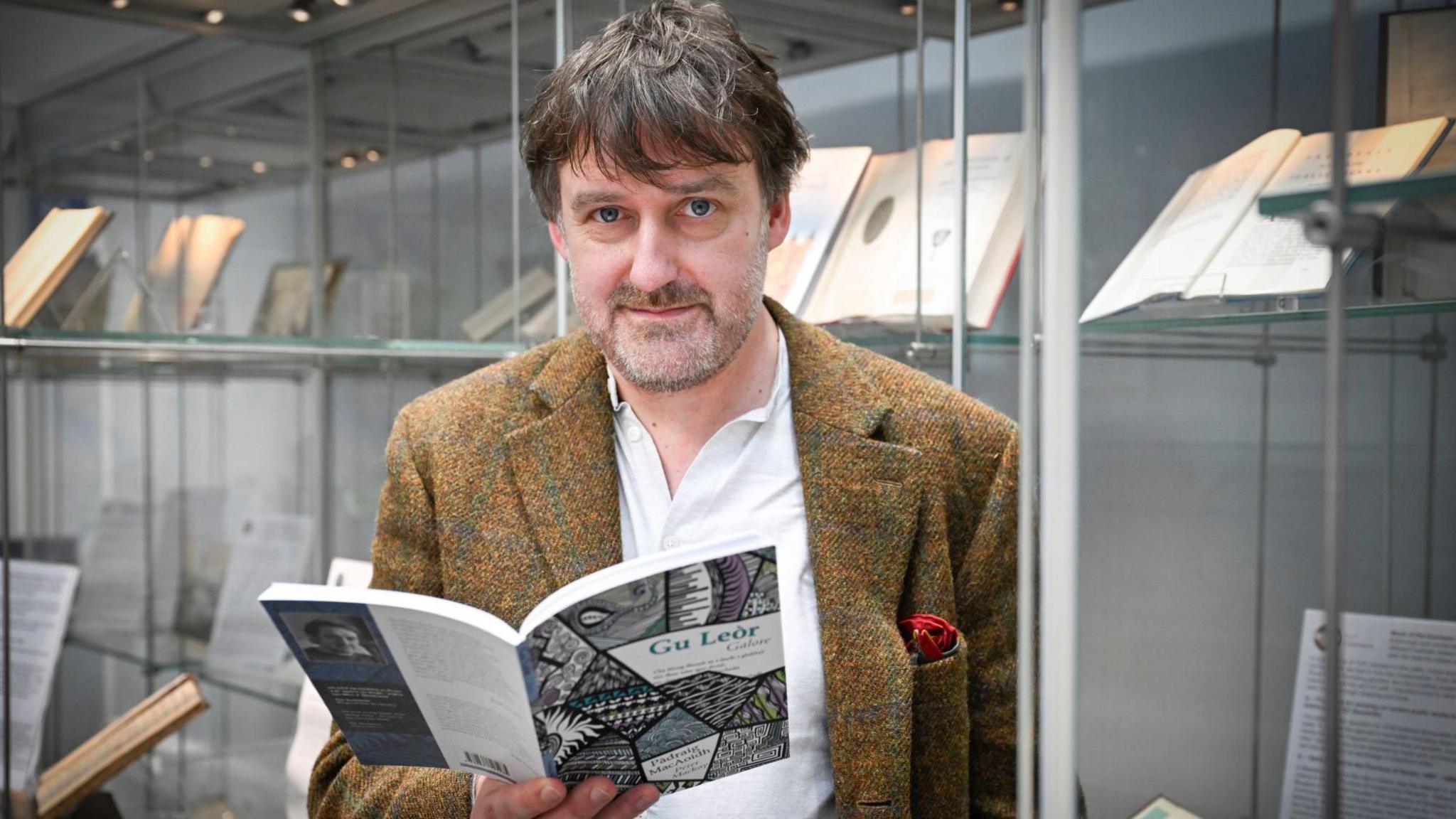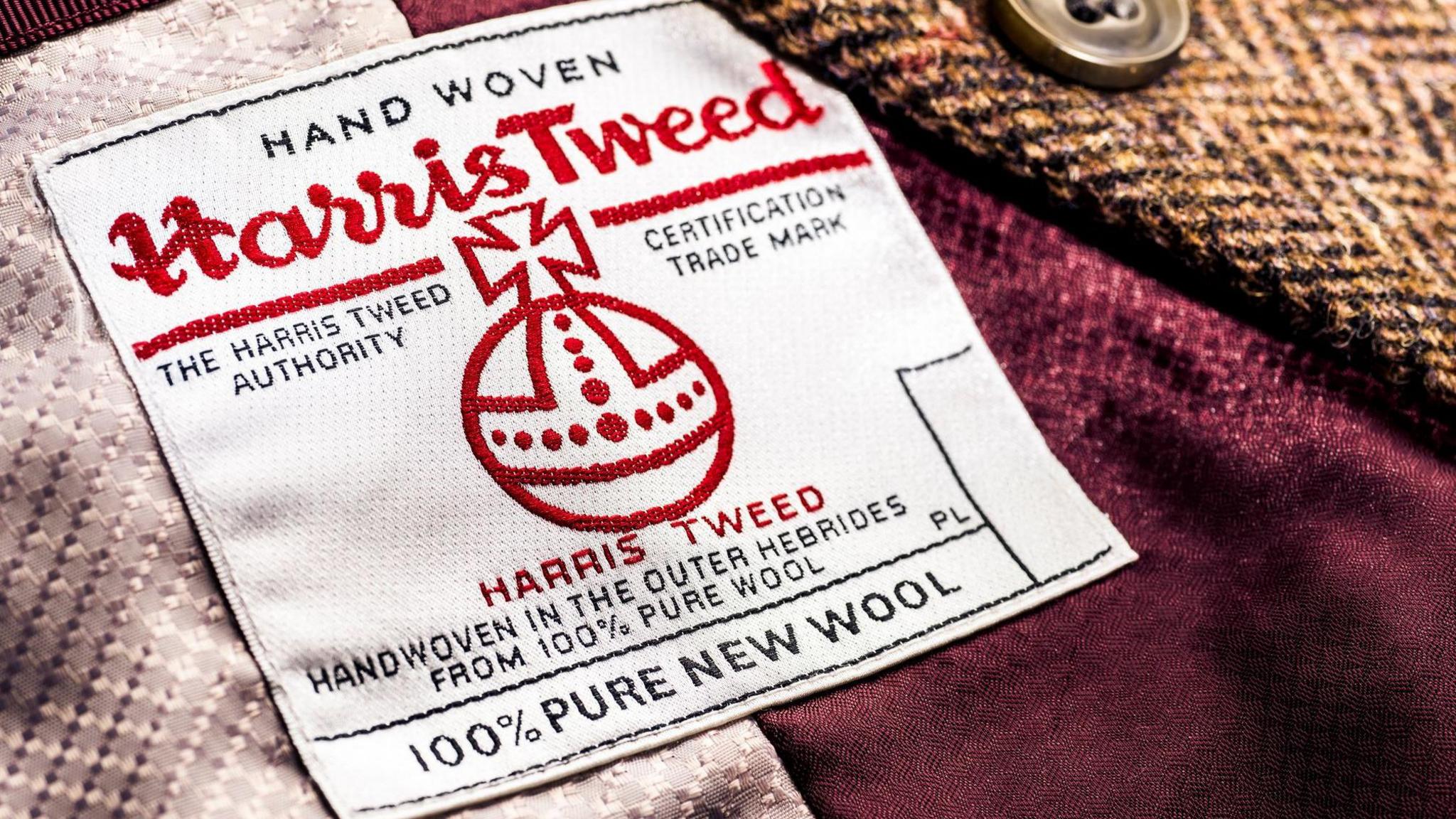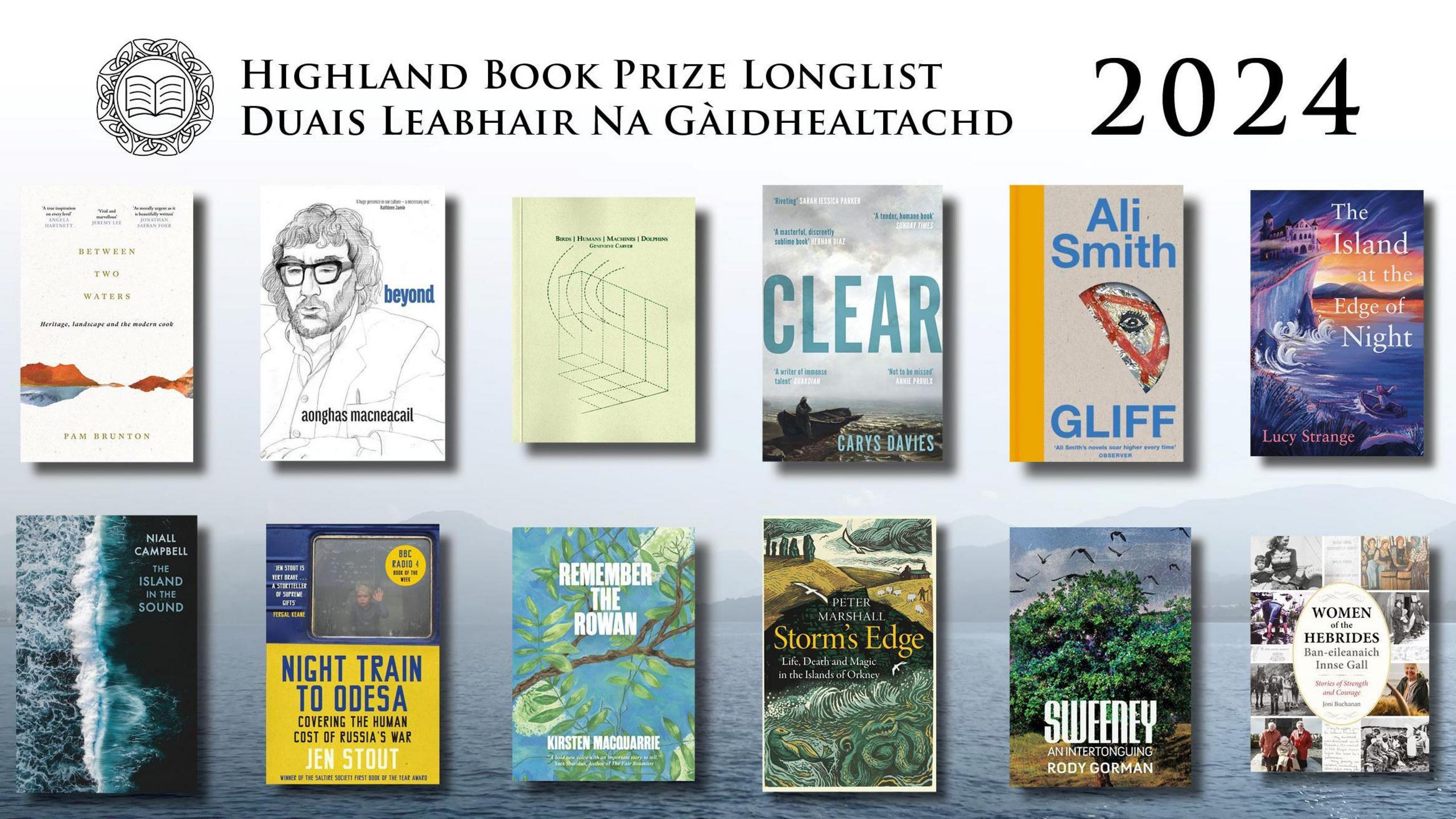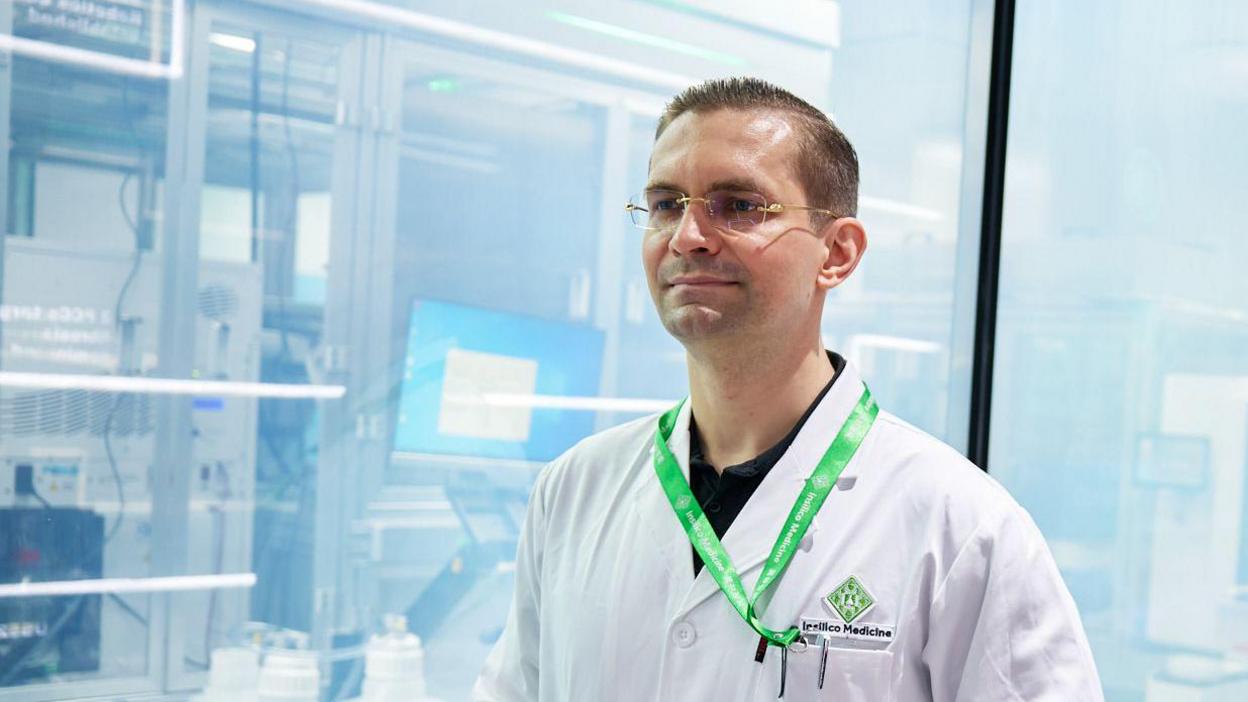New writing needs protection from AI, says Makar

Peter Mackay was appointed Scotland's national poet in December
- Published
Scottish writers and publishers are considering innovative ways to tackle challenges they face from artificial intelligence (AI).
Scotland's Makar Peter Mackay said he had "huge concerns" about the technology in terms of the creation of new literature and books.
AI tools available include ones designed for research, and others that can suggest sentence structures, character traits, dialogue options and plot twists, external.
Mr Mackay said among ideas to better protect new writing included food packaging-style guides for work written by computers, and special logos for the covers of AI-free books.
How an AI-written book shows why the tech 'terrifies' creatives
- Published31 January
Scottish artist paints over work in AI protest
- Published3 July 2024
Lewis-born Gaelic poet Mackay was appointed Scotland's national poet in December.
The original makars were medieval poets or bards, often tied to the royal court and expected to make work for significant occasions.
For the past two decades, Scottish cities have appointed their own makars and in 2004 the first national poet was appointed.
Mr Mackay is eager to encourage new writing.
But he said: "I have got huge concerns about AI in terms of the creation of new literature and creation of new books, partly because as a writer it could be disastrous for new people who are in the profession.
"It's very hard to make a living as a writer anyway and if you are having to compete with the cumulative knowledge of every book written before condensed into some form of conglomerate, that is very hard to do."

Harris Tweed uses an orb as its trademark
Last year, Mackay attended a workshop for writers, publishers and academics where AI was a topic of discussion.
Attendees looked at how it might be possible to make it clear a piece of writing was not computer generated.
Mr Mackay said: "One of the things that was discussed was a Harris Tweed Orb or Kitemark-style mark to say 100% AI-free or 100% organically produced."
Harris Tweed's Orb logo, external is sewed in clothing, and other items that use the fabric, to show the tweed has been handwoven and finished by islanders in the Western Isles, and made from wool dyed and spun in the islands.
The British Standards Institution's Kitemark, external has been used as a trademark on UK-made products for more than 120 years.
Mr Mackay said alternatively books created using AI could include a break down of the sources of its style and sentence structure, similar to way additives are listed on cereal boxes.
"It might outline this is 1% Vladimir Nabokov, 2% Gertrude Stein," he said.

Mr Mackay said awards such as the Highland Book Prize could play a part in protecting original writing
Mackay is a judge on this year's Highland Book Prize, external and he believes the competition and other literary awards could also play a part in protecting AI-free writing.
"I think one of the things book prizes do is celebrate oddity, celebrate diversity, celebrate distinctive style, the kind of thing that AI doesn't do at the moment," he said.
"It is the odd turn of phrase rather than the expected turn of phrase and I would hope that book prizes are still able to do that.
"They offer a marker of really interesting, new, distinctive voices."
He added: "I dread the first time a prize is won by something that turns out to be AI generated.
"Where would that leave the people who have been sitting for hours by themselves scribbling away having to compete with computer-generated poems, short stories and novels?"
Related topics
Related internet links
- Published7 February

- Published10 January
